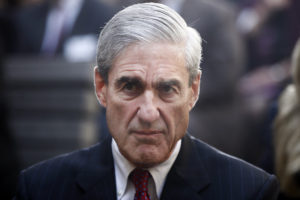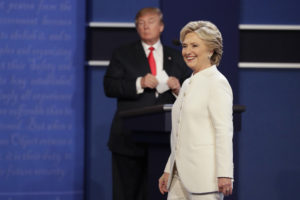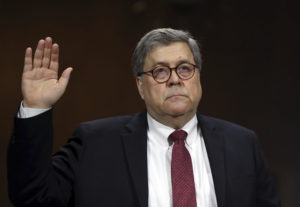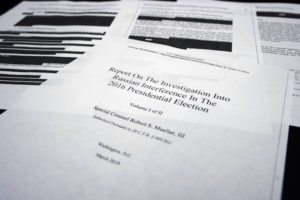6 Things to Consider When Reading the Mueller Report
The special counsel's findings may or may not be made public in the coming weeks, but here's how me might evaluate them if they are. Robert Mueller, special counsel for the United States Department of Justice. (Wikimedia Commons)
Robert Mueller, special counsel for the United States Department of Justice. (Wikimedia Commons)
Being investigative journalists means we’re constantly asking questions. But these days, it also means people are asking us questions. One we hear a lot nowadays: “When is the Mueller report coming — and what will it say?”
Our answer: We don’t know. But we’ve realized that perhaps we can be more helpful than that. We don’t have insider information on special counsel Robert Mueller’s office. (Sorry!) But we have spent lots of time investigating the president and his businesses. And we thought we’d share some of the perspectives we’ve gained.
Here are six things to keep in mind.
1. Don’t Predict.
We don’t know what Mueller will report, when he will report it or even whether we’ll be able to read it. That’s because Congress changed the law after special prosecutor Kenneth Starr’s salacious tell-all on President Bill Clinton. When Mueller is done, he has to give a report to Attorney General William Barr. But Barr can choose to keep the report confidential. Barr only has to give a summary to Congress. If Barr doesn’t make Mueller’s actual report public, Democrats will almost surely subpoena it. Then get ready for a fight.
2. Stop Focusing on “Collusion.”
“Collusion” has come to be a kind of shorthand for … basically doing something bad with Russia. But the term is both too vague and too narrow. For one thing, “collusion” is not itself a clearly defined crime. It is a crime to commit a conspiracy against the United States — for which there is a high bar: proving an intent to undermine the government.
3. Remember: We Already Know a Lot.
We already know Trump had a hidden conflict of interest involving Russia during the campaign. Despite publicly denying it, Trump was negotiating to develop a tower in Moscow while he was running for president. That means Trump had interests involving Russia — which voters didn’t know about — that could have been influencing his policy positions. That’s all problematic on its own.
We also know that Russian government interests hacked the emails of the Democratic National Committee, handed them to Wikileaks, and that at least one Trump ally, Roger Stone, was in touch with Wikileaks.
4. Don’t Expect Answers to Everything, or Even Most Things.
That’s not Mueller’s job. He is a prosecutor. His job is first and foremost to look for crimes. And while he can, and has, looked beyond Russian interference in the election, he’s unlikely to dig into everything. And, of course, there are lots of areas worthy of scrutiny beyond Russia: Trump’s businesses, his inauguration, his hush money payments and more.
5. Mueller Is Not Alone.
There are lots of active investigations looking into all these issues. A partial rundown of just the ones we know about: Federal prosecutors in Manhattan are investigating the inauguration and other matters, the New York attorney general is investigating the Trump Foundation, and the District of Columbia’s attorney general and the state of Virginia are suing Trump over emoluments. There are also a whole host of coming congressional investigations.
6. The Final Judgments on Trump’s Actions Will Be Political, Not Legal. (Caveats Apply.)
Whatever Mueller ultimately files, he is very unlikely to charge the president with a crime. Since Watergate, the Department of Justice has had a policy that a sitting president should not be indicted. And Mueller is a stickler for the rules.
Having said that, Trump does face significant legal jeopardy. For example, former presidents can be indicted. So can Trump’s own company.
Your support matters…Independent journalism is under threat and overshadowed by heavily funded mainstream media.
You can help level the playing field. Become a member.
Your tax-deductible contribution keeps us digging beneath the headlines to give you thought-provoking, investigative reporting and analysis that unearths what's really happening- without compromise.
Give today to support our courageous, independent journalists.









You need to be a supporter to comment.
There are currently no responses to this article.
Be the first to respond.